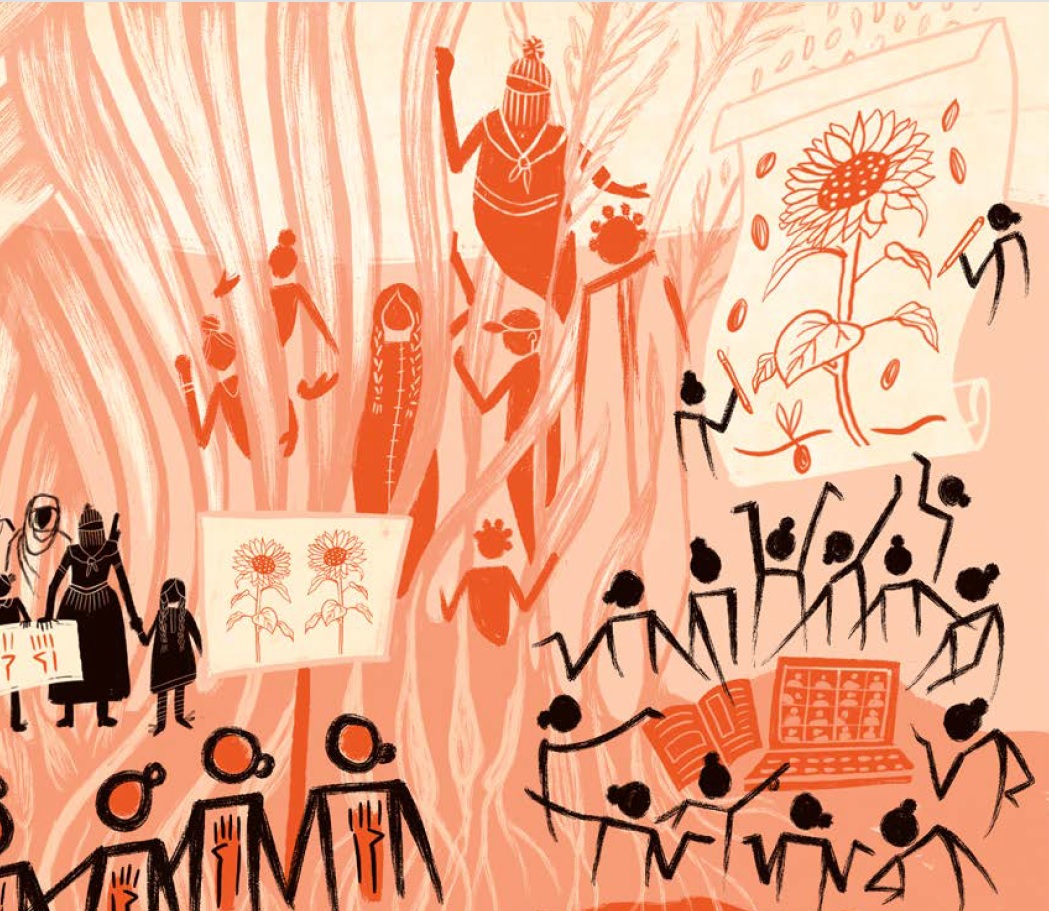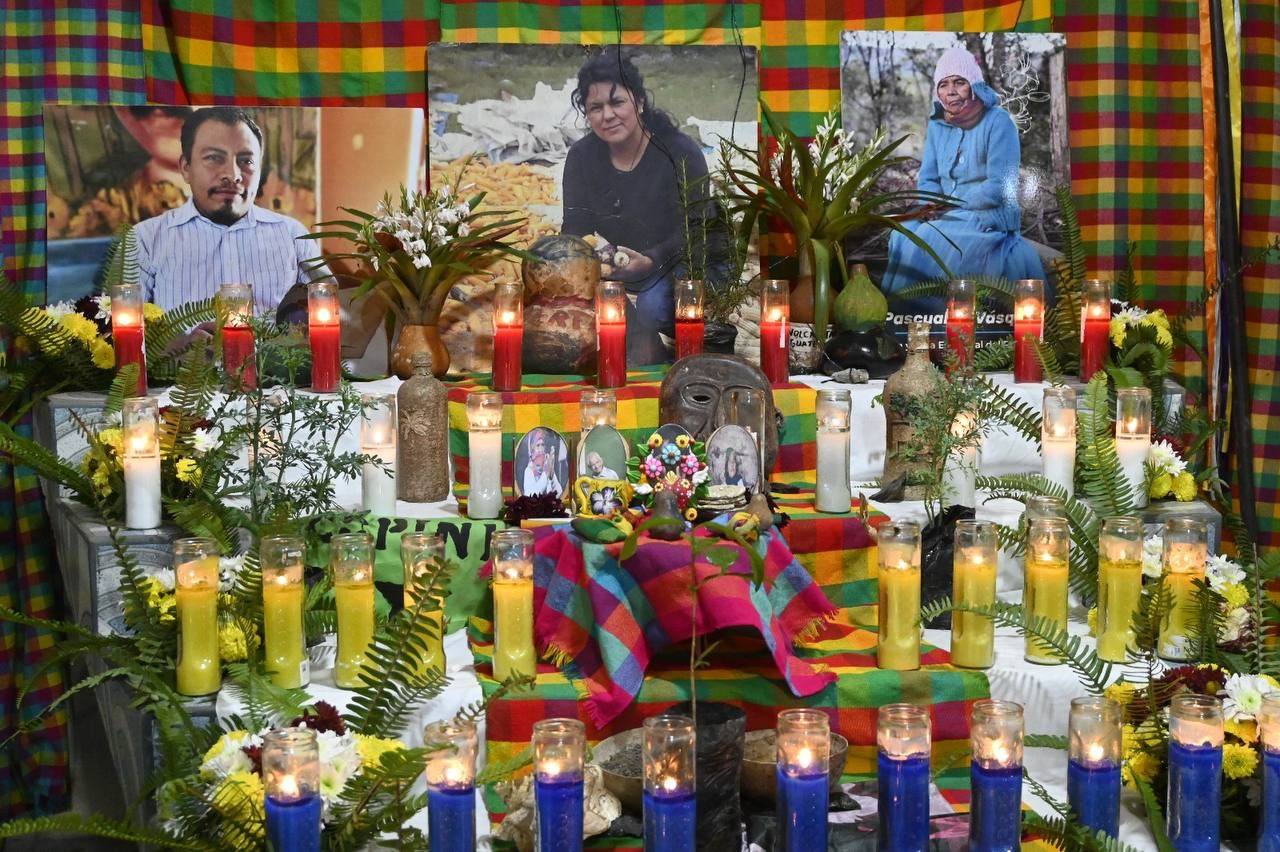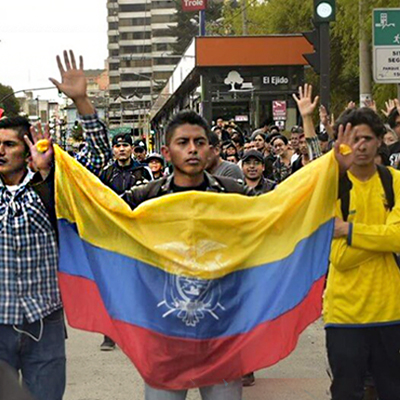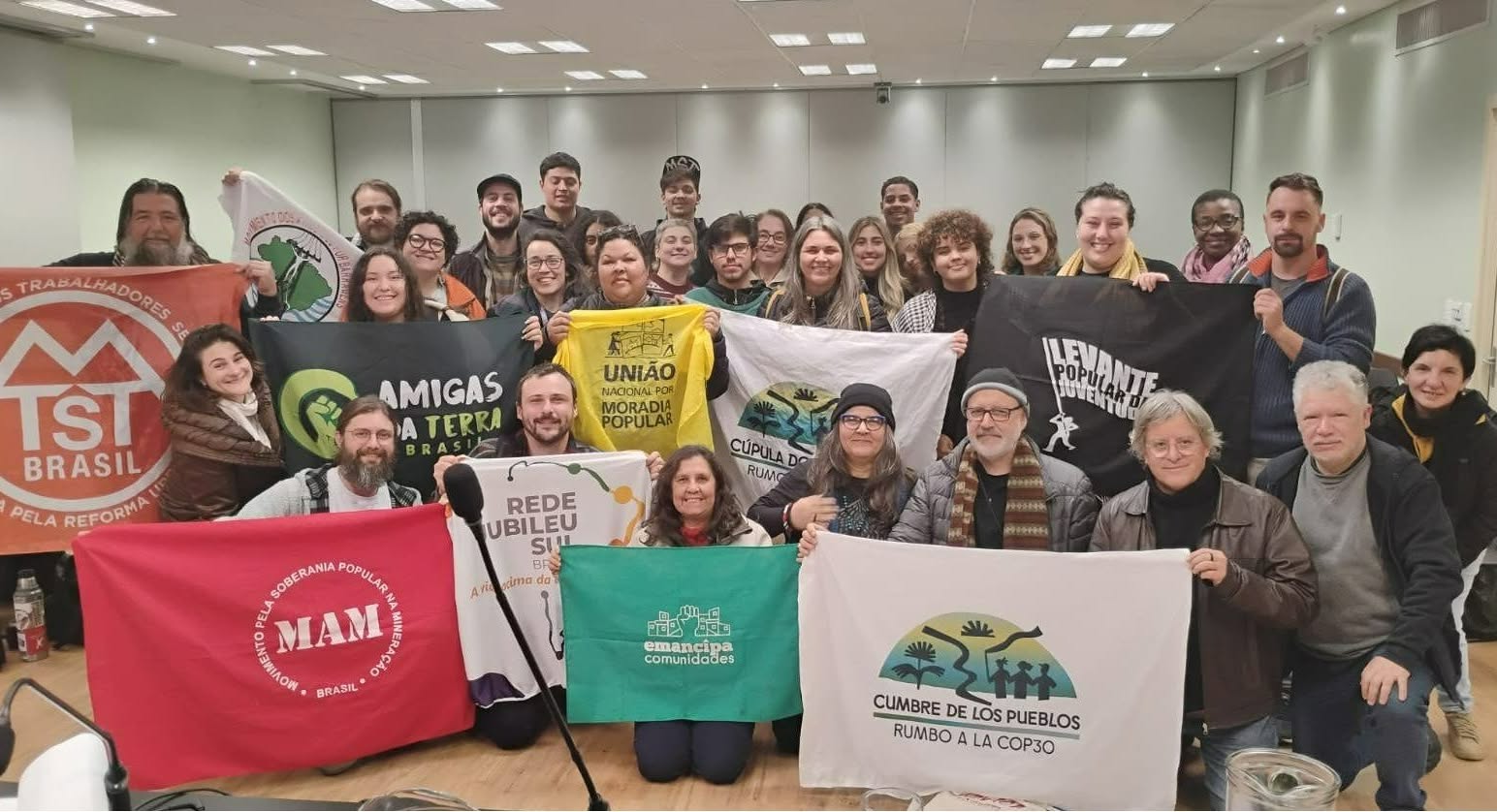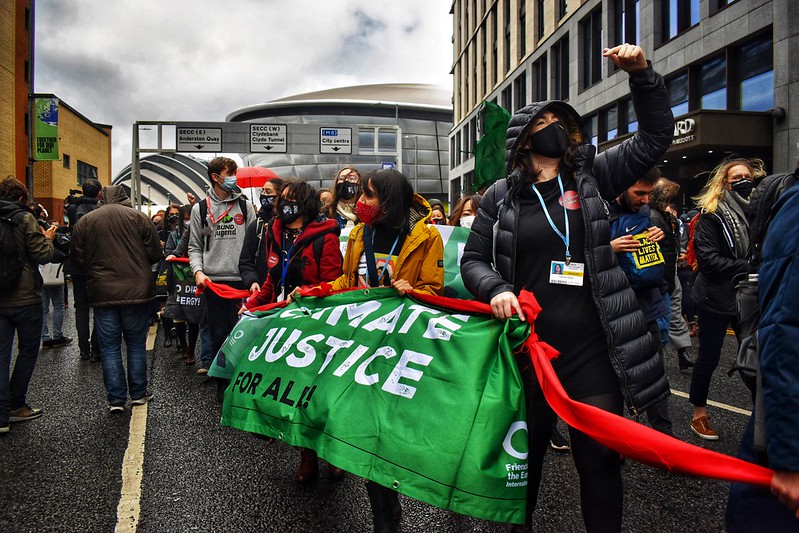From 7 to 11 August 2023, the first in-person meeting of the Berta Cáceres International Feminist Organising School (IFOS) took place in Honduras. It was held at the ECOSOL training centre in the Comayagua department, a historic area of social resistance.
“Berta understood the importance of political training and alliances to strengthen the movement. She taught us a lot and this school is her legacy,” said Sandra Morán, IFOS coordinator.
The school embraces the techniques of grassroots, participatory and transformative education. It builds on personal experiences and common agreements. It works for linguistic justice and encourages “unlearning” as a learning tool.
The idea of the school began to develop back in 2018. Due to the Covid-19 pandemic, its first edition had to be held online, organised by Grassroots Global Justice (GGJ), Indigenous Environmental Network (IEN) and World March of Women (WMW). For the 2023 meeting, the Continental Day for Democracy and against Neoliberalism also joined as organisers.
More than 100 women and gender-diverse people came from all over the Americas to participate in the School: peasants, workers, black, migrant, indigenous and queer people, representing 22 countries and 12 organisations. They all met together at the same time, in the same place, with many ideas. It is these ideas that will shape their struggles beyond this meeting space.

The first moment of interweaving was through hugs, as some people saw one another for the first time, others were meeting again. They all came with their own struggles, resistance and memories, but in the course of the hours spent together they found that their conflicts and problems coincided and were repeated. They identified and named that which affects their lives, territories and bodies.
But in the end, it will not be the horror of violence and injustice that keeps them united, but rather a shared political and ethical project to transform the world into one where everyone can live with dignity.
“Feminist economy as a political proposal, and grassroots feminism as a way to strengthen and articulate the diverse feminist movement, will undoubtedly be at the heart of the debate”, said Camila Guerrero, from the Martin Luther King Memorial Centre, to the Cuban magazine Revista Mujeres.
We have always been here
Each day begins with a short ceremony, or “mística”. The rituals and worldviews are diverse. A “mística” is a political exercise to recover spirituality and ancestral memory; it is a moment to heal and connect with the air we breathe, the earth we walk on, the blood that flows and the fire that is lit along with our intentions. The offerings and gratitude are for Berta.
“The first thing that the system takes from us is our history”, said one comrade, recalling Peruvian sociologist Virginia Vargas. Another participant followed, saying: “the ones who forget their history get lost on the way”. On the first day of the school, they built a history rope, a timeline filled with feminist memories.
“Official history” has excluded all identities that do not correspond to that of a white, bourgeois male. The history we were told is patriarchal, racist and colonial. However, social organisations, grassroots movements, women and gender-diverse people have always been there.
Reclaiming memory is crucial to seeing the leading role we play in our own memories. A reconstruction of history that is not based on the absences or shortcomings that capital imposed on lives, but a history told through rebellion and power.
It is this history that allows us to build knowledge and identity in a collective and plural way. IFOS is based on the premise that diversity is richness.
“I think it is a shared feeling, that we are all fighting for freedom, for justice, for rights and for respect for diversity,” said Emilia Costa, from the Quilombola Movement of Maranhão MOQUIBOM, Brazil.
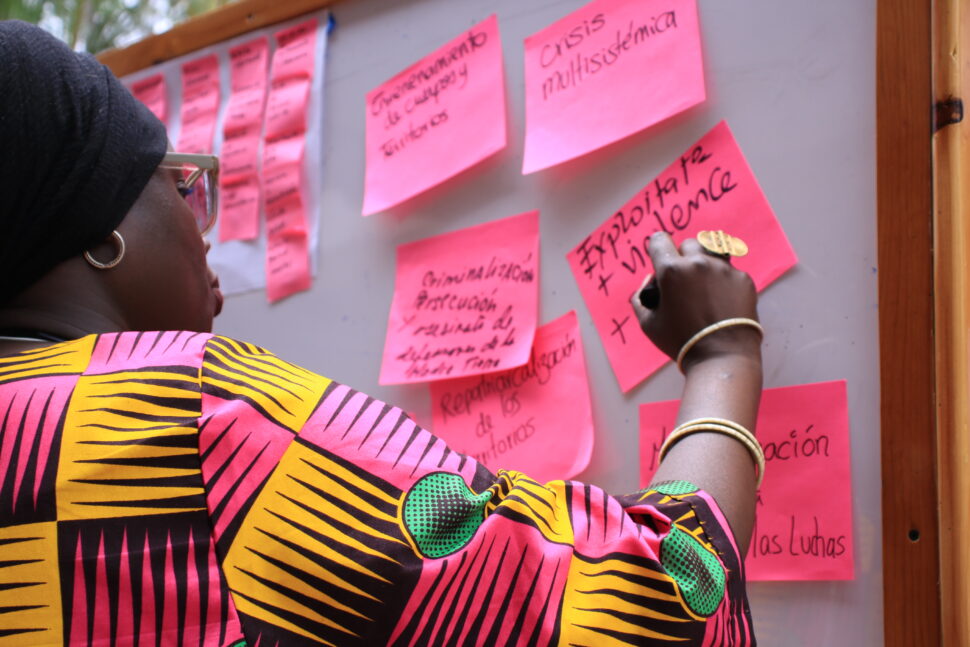
Politics from and to the roots
The Feminist School is a place where no one is silent and no one is silenced. Whenever a murmur starts to grow, someone does a “rain clap” to bring everyone’s attention back to the space. After rest breaks, a drum calls for the sessions to resume. A feminist and grassroots project must transform power relations and give a central role to tenderness.
A tree is sustained, nourished and grows thanks to its roots, which cannot be seen, but are the base that allows the trunk to exist and the foliage to develop. This metaphor is used in IFOS to work on the systems of oppression (the roots) which, hidden and intertwined, allow the institutions and mechanisms (the trunk) to trigger the direct effects or impacts (the foliage) on life.
We did a practical exercise using the tree for three themes: body and sexuality, with a presentation by María Dolores Marroquín of WMW; land and nature, presented by Karin Nansen from Friends of the Earth Latin America and the Caribbean (ATALC); state and democracy, in the voice of Cindy Wiesner of GGJ.
PG Watkins from the Centre for Third World Organising told RMR: “There is something about this that gives a very clear picture of how we can get to the root of something. In my training and political education work I often try to get people to see the importance of getting to the root, of not doing actions that just get to the branches or knock down a few leaves. But to really try to think about what it is that keeps this going.”
A feminist economy aims to reorganise life and stop the death project of Capital. Women and gender-diverse people know how to do this. They have sustained the world historically, they have experience, an identity, the capacity to mobilise and the will to act. Grassroots feminism is the convergence of diverse feminist identities in the territories and at the grassroots. They have proposals to change the system and thanks to the IFOS, these proposals are coordinated.

Multiplication
On the last day, the IFOS visited Utopia, the Centre for Meetings and Friendship of COPINH. The day coincided with the birthday of Pascualita Vázquez, spiritual leader of the Lenca organisation, who died last year. Remembrance, once again, became urgent and essential.
There, Berta Zúñiga, the daughter of Berta Cáceres, said: “We are the school of Berta Cáceres. She was a reference for us and today we feel very happy because there really is a school, now there are more of us.”
“For me it has been very important to create this little school in the name of Berta Cáceres. If it hadn’t been for her, perhaps we wouldn’t be meeting here, our voices would not be heard. For me it is a pleasure and it will not be the first or the last time we will be here,” said Rosalina Domínguez, Vice-President of the Lenca Indigenous Council, from the community of Río Blanco in Honduras.
The IFOS is a seed. The women and gender-diverse people who build it are the pollinators. They will return to their spaces to share and exchange knowledge, to generate more spaces, to propose and show that a project that prioritises life is possible and that it is already taking place.
Photos: Grassroots Global Justice



